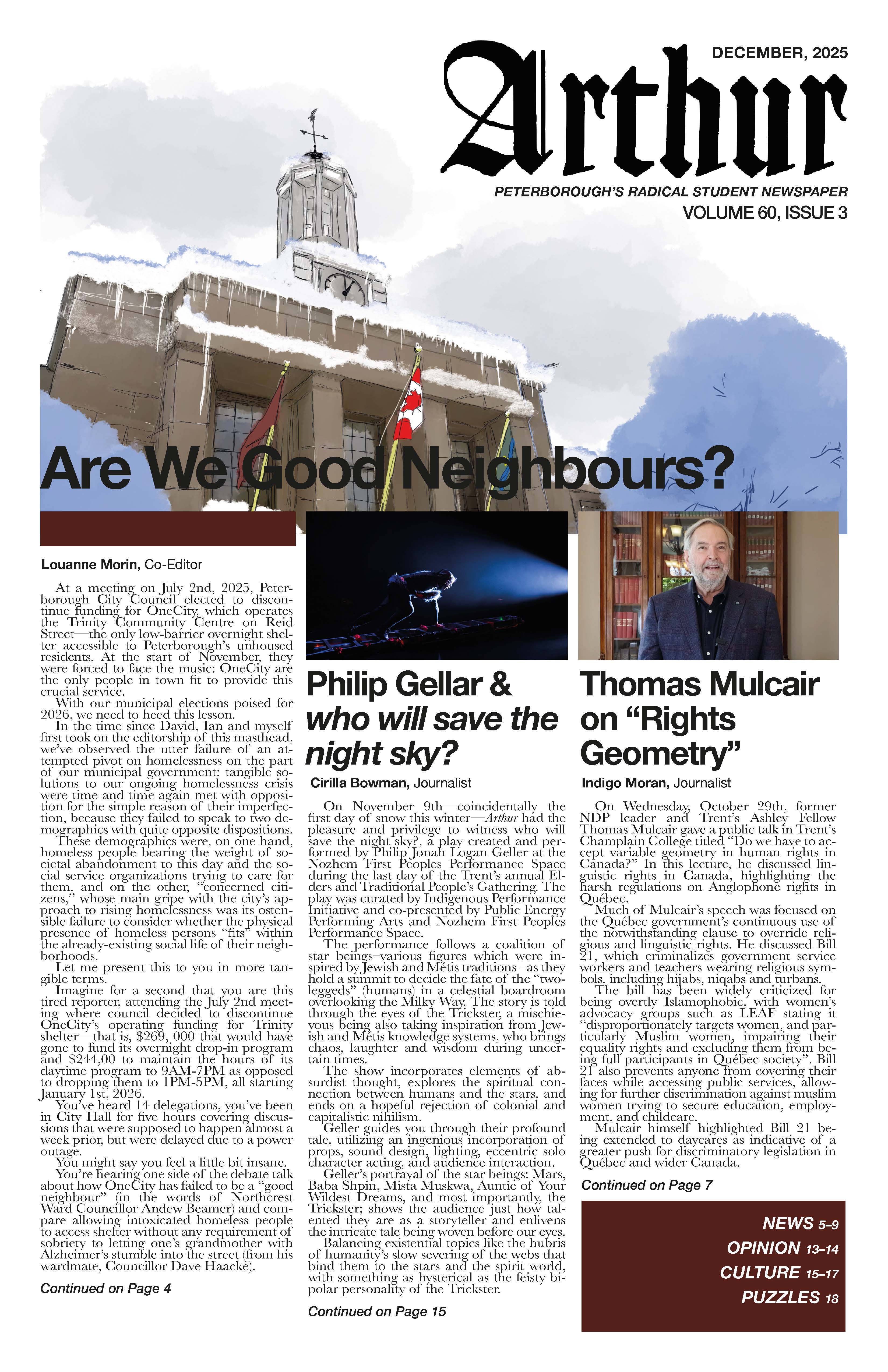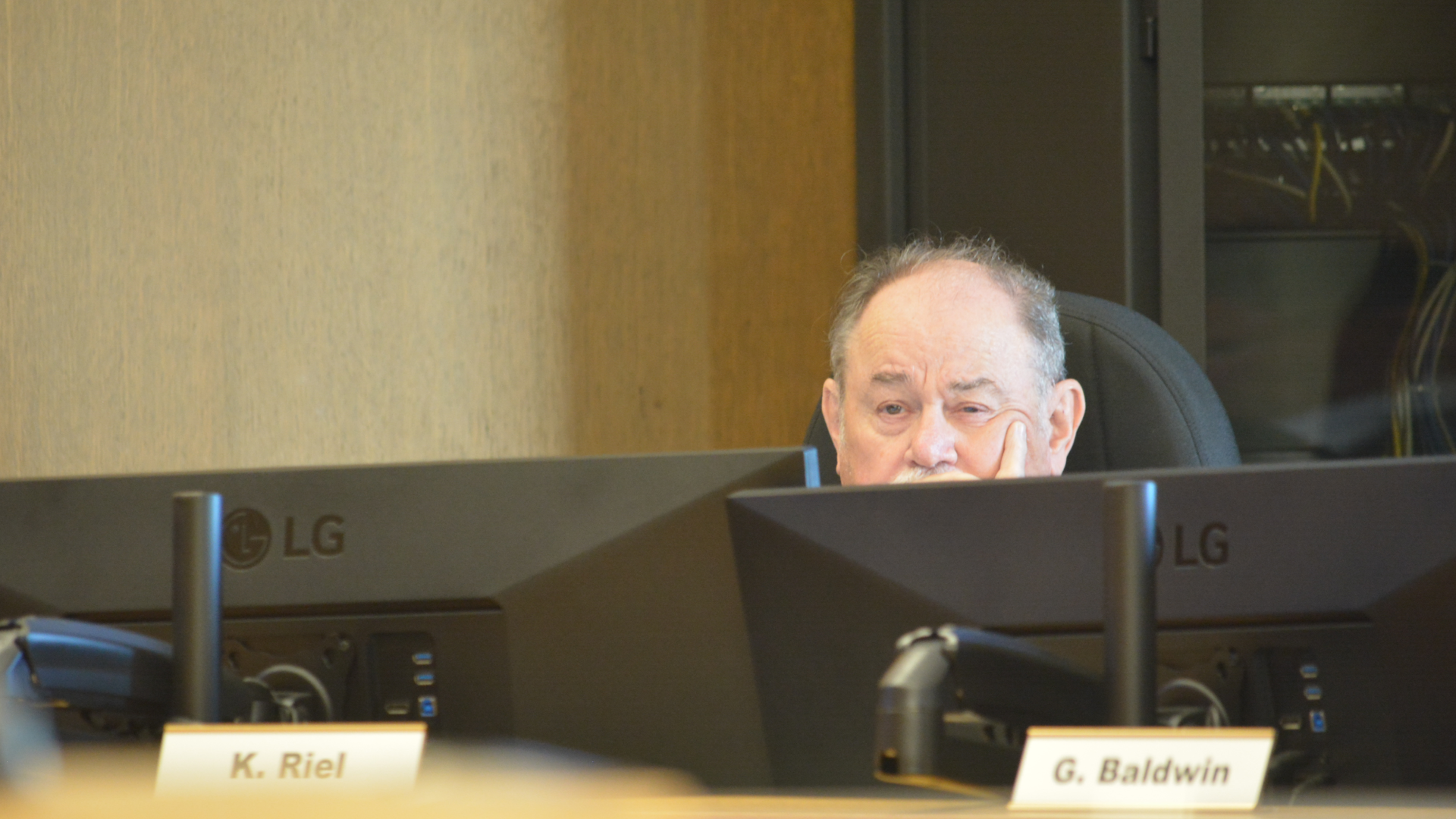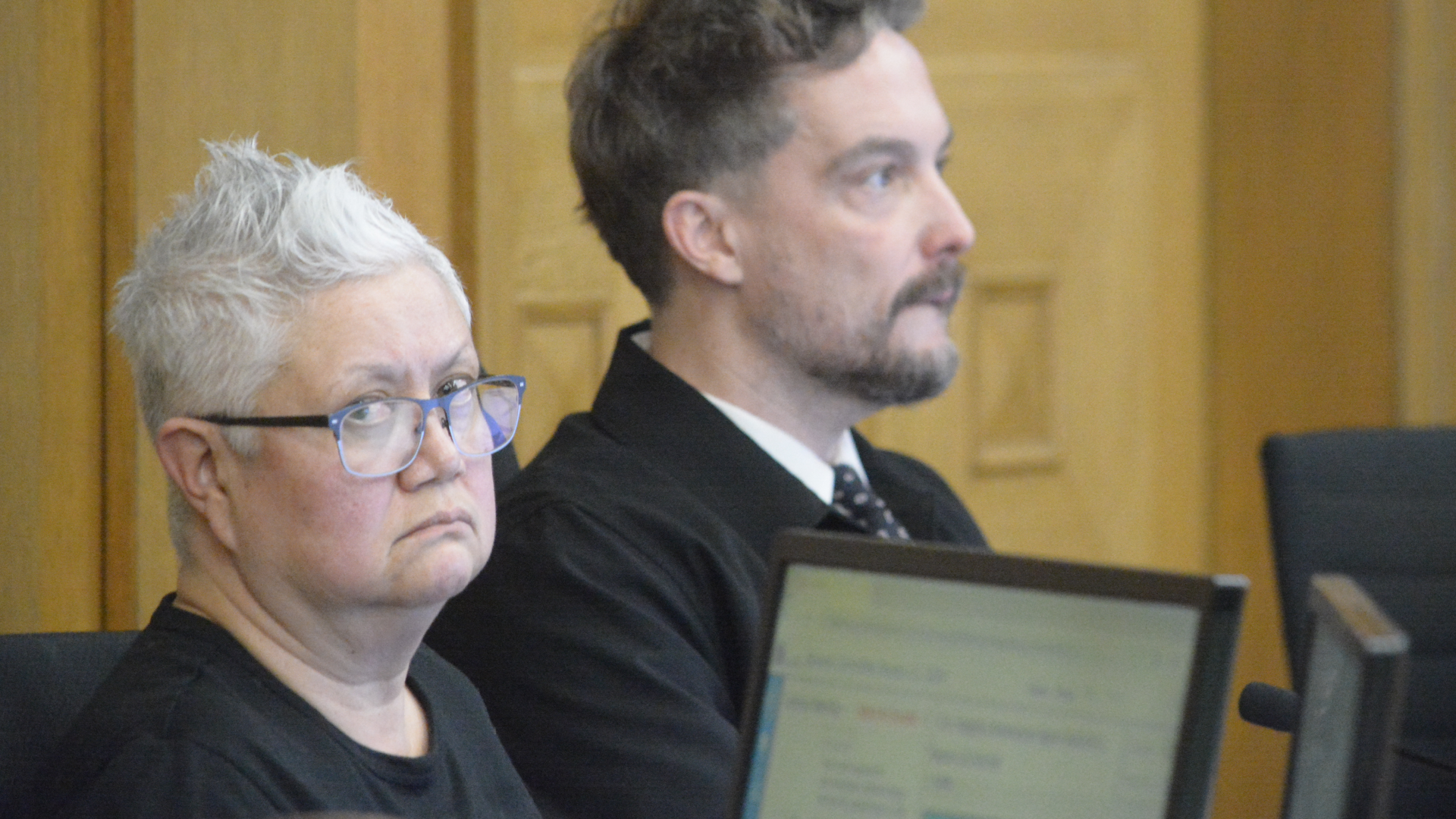On November 16th, the editors of Arthur attended a media tour of the modular home community on Wolfe Street. The changes to the site in the year since we have been visiting and bearing witness to the magnitude of the homelessness crisis facing our community are staggering and bring about a wide range of complex emotions and feelings about what is transpiring.
Chief among them, perhaps, is a sense that this is only the first step in what will be a long-term fight to ensure that housing is recognized, and provided, as a basic human right not just in our City, but across Canada and the rest of the world while also addressing previous systemic failures of the local shelter system.
It’s important to note how quickly this strategy was put in place, and that it was less than one year ago, when this Council first sat in December following the 2022 municipal elections, they voted against allocating $100,000, or approximately 5% of the social services reserve to support a coalition of community groups to develop a strategy for homelessness.
Fall of 2022 saw an already-dire homelessness crisis hit a new trough, with a lame duck council failing to enact a serviceable winter plan in the face of a then-looming municipal election. While homelessness was a fixture of discussion at mayoral debates, community town halls, and online, little to no progress was made in the aftermath of the election, even with newly-elected Councilor Alex Bierk making the issue an immediate priority.
Council’s seeming disdain for the city’s homeless population—especially those camping outside the Wolfe street overflow shelter—resulted in a long and bitter winter of discontentment among many of those involved in social services in the city who were left to pick up the slack.
Arthur staff witnessed firsthand the conditions to which those living in the former Rehill Parking Lot were subjected from many days spent at the makeshift encampment talking to those living there, community organizers, and Town Ward Councilors Bierk, and Joy Lachica, who both visited the site on multiple occasions.
Overflow shelter residents lived under constant threat from police and public works, all while Council remained steadfast in its refusal to divert any funds towards support for a winter plan.
At its worst, Council approved a motion to corral encampment residents within a fenced area in front of the Wolfe street shelter policed by private security. While done for the nominal wellbeing of the residents, onlookers would be forgiven for seeing the measure as rather dystopic and carceral.
In spite of these facts, however, the distance between Council’s approach to the crisis then and now is nothing short of remarkable.
Key to the success of this strategy getting to this point is due in part to the work of Councillors Keith Riel and Alex Bierk, Chair and Co-Chair of Housing and Homelessness in the City. The modular homes now stand as a testament to their work in building consensus at Council by looking at the roots of the issue and getting honest about the numbers of unhoused individuals and the reasons why shelters were not at capacity while encampments persisted. In working with City Staff, first responders, and outside organizations, such as the Elizabeth Fry Society, who will be operating the site on behalf of the City, and Fourcast, in order to ensure that this strategy is sustainable, supported, the hope is that together these efforts will achieve the goal of providing these people with a hand up and out of the cycle of homelessness moving forward.
Additionally, the strategy includes a $2.5M Provincial funding boost for Peterborough meant to address homelessness in the City which was announced in April of this year. Beyond that stipulation, there were few, if any, strings attached to the funding.
MPP Dave Smith told reporters the day of the announcement that he firmly believed in the necessity of ensuring access to wrap-around services in addition to providing safe places for people to live and that “tiny homes” should be viewed as a step along a larger continuum of housing solutions, and not one for the long-term.
Being able to provide something of a stepping stone along the way to being securely housed is one way to stop what has become a cycle of chronic homelessness. This cycle is what ultimately led Council and Staff to build a model that depended on 24/7 supportive housing, which was a shift from prior proposals brought forward to Council. As Councillor Bierk reminded us, the City’s primary responsibility—as he and Councillor Riel have come to see it—is to provide shelter for people, no matter their level of acuity.
Ultimately, the City’s picking a lane has allowed the other organizations that they have partnered with to fill the gaps in the system and work within the physical infrastructure provided. It is a starting point and cooperation and investing in community members who are experiencing homelessness is a necessary foundation to build on moving forward.
“We fully believe that by investing in people that is how we make a real difference in our community,” Debbie Carriere told the assembled media on November 16th. “We are so proud that this community has come together, led by the Mayor and our Councillors, and the City team. We have all come together to create something that it's going to invest in the people.”
The fifty modular homes will be filled by the end of November, with the first residents having moved in on November 27th. These individuals were chosen from the City’s by-name priority list and the majority are currently living in the encampment which Council passed a by-law to allow for up until January 2024.
In addition to this measure, there is a new overnight shelter at Trinity Community Centre, operated by One City Peterborough and funded by the City. Trinity, which will operate as a low-barrier site for harm reduction, will be able to provide shelter to up to 45 people and opened its overnight winter program on November 28th and began an afternoon drop-in program from 1-5 on December 1st.
Significantly, the individuals living at the modular home site each pay rent for their unity through the housing portion of their Ontario Works or ODSP allotment. As Keith Riel told the media on November 16th, this is their community and this is no different than any other subdivision within the City.
Each 107 square-foot home has been carefully set up to reinforce this sense of community. Each is offset to ensure sunlight can enter through a window, there is room for storage between each, and a place for residents to lock up their bicycles.
The homes are furnished with a full-sized double bed, electricity, heating and air conditioning, a mini fridge, as well as a dresser, plates, cutlery, and assorted towels.
There are five washroom and shower facilities in the lot and a fully accessible washroom in the building which housed the former Wolfe Street shelter, which will now host the offices of the Elizabeth Fry Society and medical staff.
There is a curfew, Riel reminded us, but only for those visiting the community. Residents are free to come and go as they please, though they are registered with security which is active 24/7 and operates out of a structure at the front of the lot.
Homelessness is an issue which defines the City of Peterborough, and implicates every one of its residents. It is, of course, a nationwide, even global issue, but what is important to note in this story is that local responses are required to address local issues.
With this in mind, when faced with voices that further stigmatize our city’s most vulnerable—such as the Trent Central Student Association’s “Tent University”, in which the student union promoted a protest for free post-secondary education through a display which only further glorified the city’s homelessness as a cash grab for their personal gain—it is important to acknowledge the tireless efforts of countless community organizers doing their best to address the woefully inadequate homelessness strategy in the interim.
Organizers such as the Elizabeth Fry society, One City Peterborough, Fourcast, and Councillors Bierk and Riel have all contributed to the implementation of the modular homes and making significant strides to combat homelessness in this city.
Housing precarity and homelessness are human crises, with human dimensions, the responses to which must be fundamentally humanitarian undertakings. The humility of those lending their time, money, and effort to helping those most marginalized and systemically disadvantaged is nothing short of remarkable, and the principle of extending dignity to those who are so rarely afforded any is a noble one, at that.
Provincial funding made this project possible, yes, but the freedom to utilize that money in a manner that made sense at the municipal level, by utilizing local services with deep knowledge both of the community and the people affected by the issue of homelessness, is what has brought it to this point.
As the last residents move into the modular homes, a new chapter in this City’s history begins. While many from across the country turn their attention to see what happens, we hope on behalf of the entire Peterborough/Nogojiwanong community that everything goes according to plan.





.png)















.jpg)











.png)